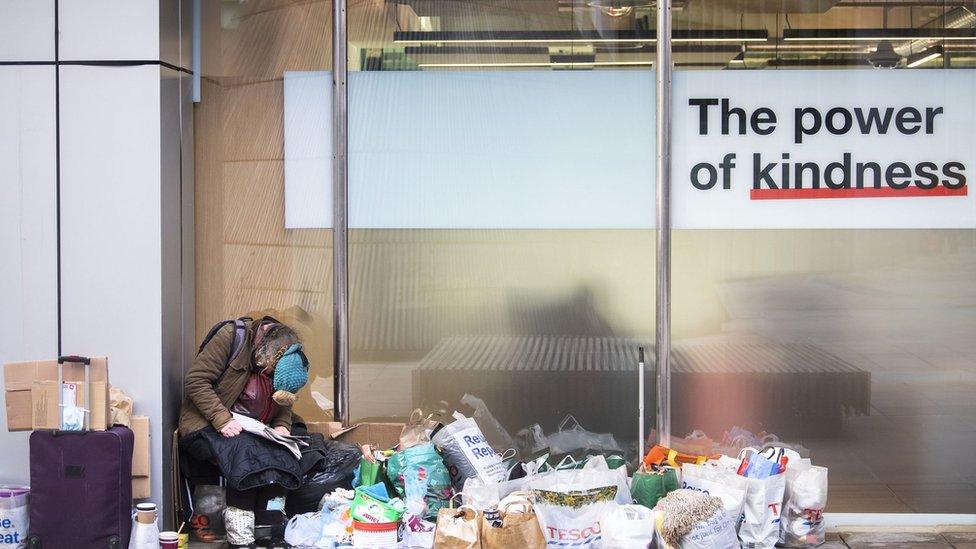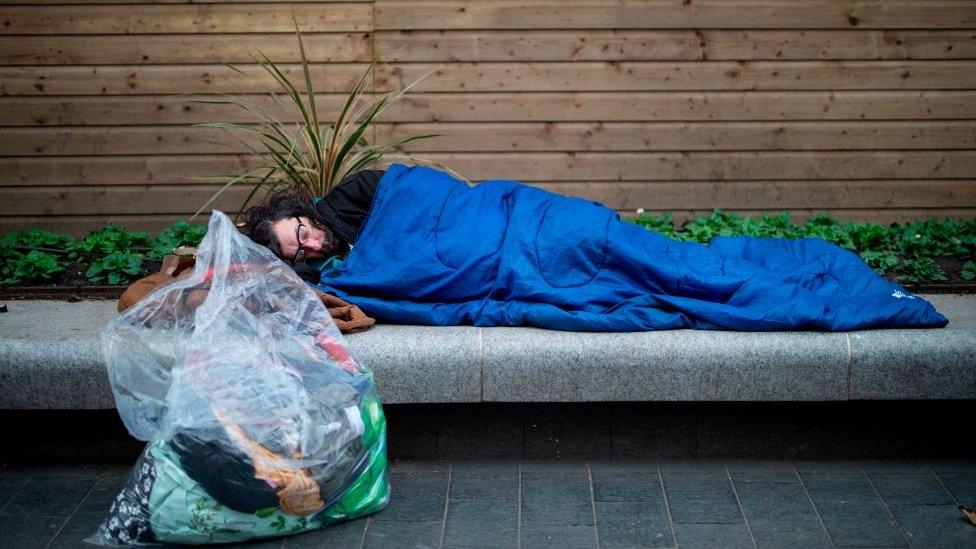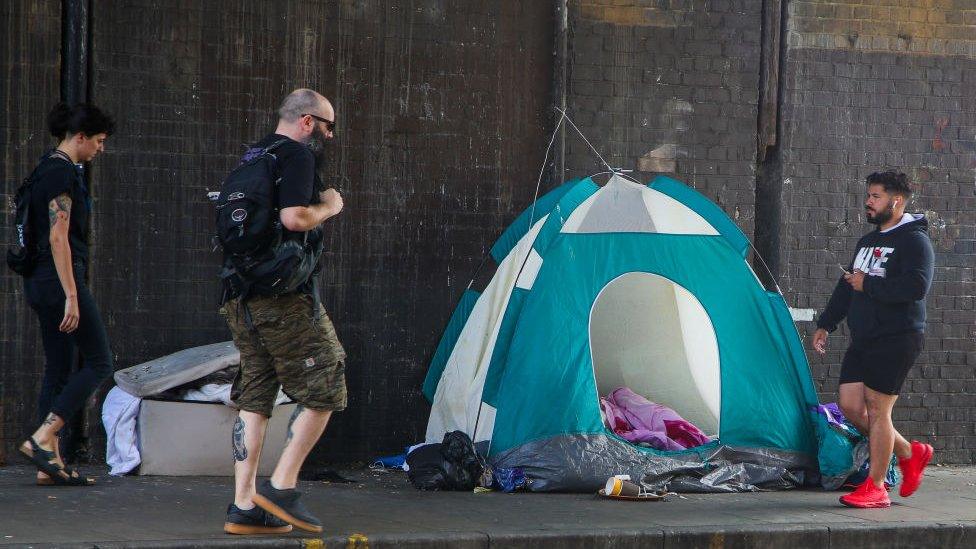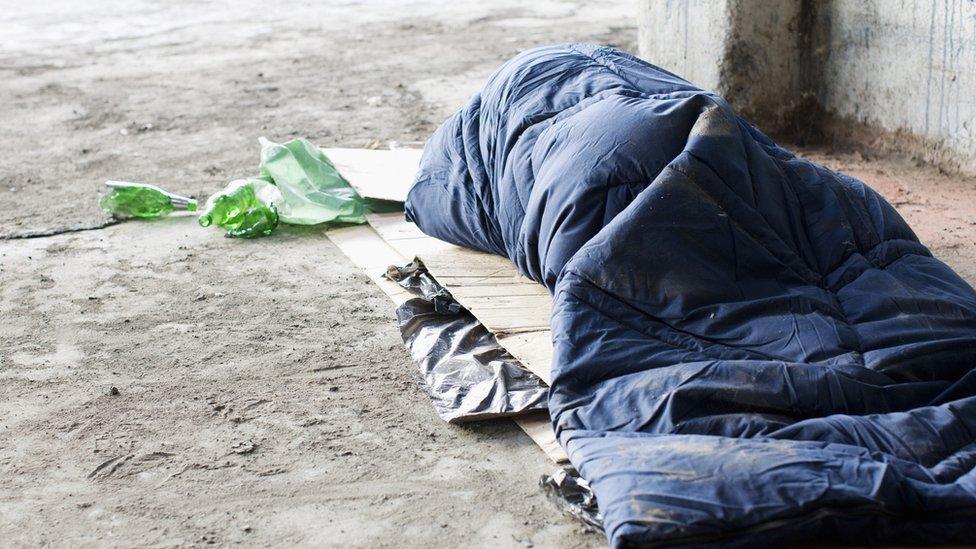Covid-19: All homeless can be housed in pandemic, court rules
- Published

The judge ruled councils could provide emergency accommodation during the pandemic
The High Court has ruled councils can provide emergency housing during the pandemic to homeless people who would not normally be eligible for support.
Failed asylum seeker Timon Ncube challenged a decision by Brighton and Hove City Council not to house him.
Mr Justice Freedman ruled councils could provide emergency accommodation to those with no recourse to public funds during the Covid-19 pandemic.
Charity Shelter said not housing people meant "lives have been put at risk".
During the first lockdown, which began in March last year, people living on the streets were helped into accommodation under what was dubbed the "Everyone In" policy.
In May, it was revealed funding for the emergency scheme would end.
'Public importance'
When Zimbabwean national Mr Ncube applied in September, Brighton council refused to accommodate him, arguing it did not have the legal power to do so because Mr Ncube had no recourse to public funds.
Mr Ncube had fled Zimbabwe after being threatened by its government, the court ruling said.
He claimed he had been spending most nights destitute at Brighton railway station and had eye problems, deteriorating mental health and diabetes, with a higher Covid-19 risk because of his age and ethnicity - which he submitted was "an emergency involving danger to life".
The council argued that when it made its decision, Brighton was not subject to any enhanced level of coronavirus restrictions and was in Tier 1, with an incidence of cases that was "comparatively low".
'Cruel impact'
By the time the case reached court in December, Mr Ncube had been given Home Office accommodation in Swindon.
However, the court went ahead with the hearing, saying it raised issues of "public importance".
The court ruled, external the defendant, Brighton and Hove City Council, had powers under the Local Government Act in the context of the emergency "to take action to provide accommodation or secure assistance" to avert, alleviate or eradicate Covid-19.
Polly Neate, chief executive of Shelter - which supported Mr Ncube's action, said: "Our services have seen first hand the cruel impact of 'Everyone In' not always meaning everyone.
"This judgment removes any doubt - councils should not be leaving people on the streets."
Siriol Hugh-Jones, vice-chair of Brighton and Hove City Council's housing committee, said: "In the absence of government guidance, we welcome the identification by the court of the additional, albeit limited, powers councils have to help people with no recourse to public funds (NRPF) and not entitled to support from other agencies where there is a danger to life.
"We would have preferred the government to act on our call to suspend the restrictions on assisting those with NRPF. But the court's clarification of exactly where councils are able to offer assistance is helpful.

Follow BBC South East on Facebook, external, on Twitter, external, and on Instagram, external. Send your story ideas to southeasttoday@bbc.co.uk.
Related topics
- Published25 February 2021

- Published8 October 2020

- Published16 May 2020
